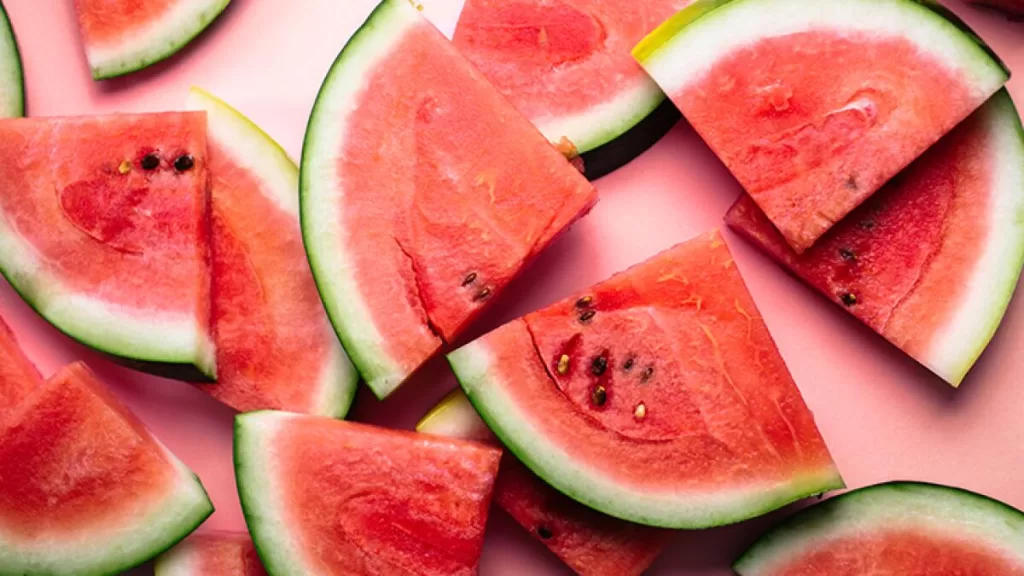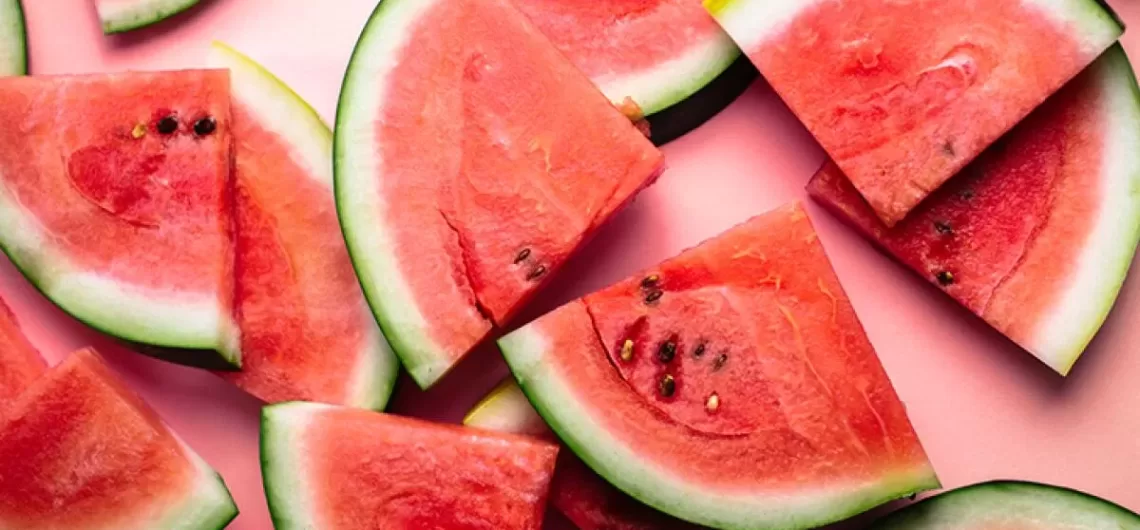Watermelon Origin
Watermelon is believed to have originated in Africa, possibly in the Kalahari Desert region. The fruit was cultivated in ancient Egypt and was also grown by the ancient Greeks and Romans. The fruit was brought to the Americas by European colonists and African slaves during the 16th century.

Today, watermelon is grown in many countries around the world, with China being the largest producer of followed by Turkey and Iran.
Health Benefits
Watermelon is a delicious and refreshing fruit that is enjoyed all over the world. It is not only tasty, but it also has several health benefits.
- Hydration: The fruit is mostly made up of water, which makes it a great fruit for staying hydrated.
- Nutritional value : It is rich in vitamins A, C, and B6, as well as potassium and lycopene.
- May reduce inflammation: The antioxidants found in watermelon may help to reduce inflammation in the body, which is associated with several chronic diseases.
- Good for heart health: The lycopene found in watermelon may help to reduce the risk of heart disease by lowering cholesterol levels and blood pressure.
- May improve digestion: It is high in fiber, which can help to improve digestion and prevent constipation.
- Improve exercise performance: Contains an amino acid called citrulline, which may help to improve exercise performance by reducing muscle soreness and improving endurance.
- Also reduce the risk of cancer: The antioxidants found in watermelon may help to reduce the risk of certain types of cancer, such as breast and prostate cancer.
Benefits of watermelon seeds
Watermelon seeds may provide several health benefits, including:
- Rich in nutrients: Have essential nutrients, including protein, healthy fats, fiber, vitamins, and minerals.
- May support heart health: Contain magnesium, which can help to lower blood pressure and support heart health.
- Help with digestion: The fiber in the seeds can help to promote regularity and support healthy digestion.
- Support immune function: They are a good source of zinc, which is important for immune function and wound healing.
- Weight management: its are a low-calorie snack that can help to keep you feeling full and satisfied, which may support weight management goals.
- Has anti-inflammatory effects: The seeds contain compounds that may have anti-inflammatory effects, which can help to reduce the risk of chronic disease.
Overall, watermelon is a delicious and healthy fruit that can be enjoyed in a variety of ways.This include as a snack, in a smoothie, or in a salad.
